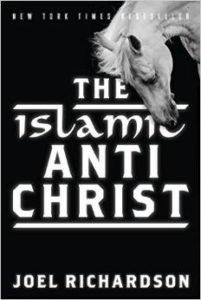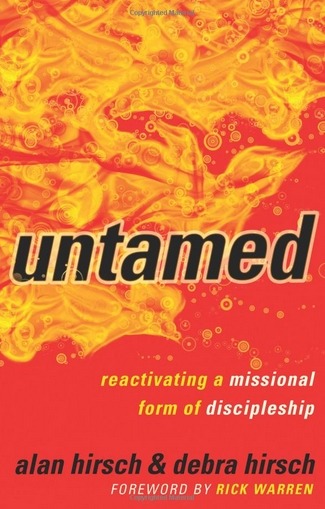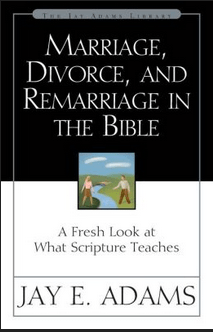 The Islamic Antichrist
The Islamic Antichrist
by Joel Richardson
If you think you have the end times all figured out, you probably don’t want to mess up your charts and predictions with the information presented by the author. If, however, you are willing to look at things from a new point of view, comparing what the Bible teaches to the teachings of Islam found in the Quran and the Sunnah, this will make for interesting and informative reading.
Richardson writes under a pen name, which is understandable given the murderous nature of radical jihadist Islam. He makes it clear that he is not anti-Muslim. In fact he insists that he loves many Muslims and hopes that what is contained in the book will not turn people against Muslims. It is Islam with which he has the issue. He adds that there is much to be learned from having authentic relationships and conversations with Muslims about Christ and Islam.
The first part of the book compares Islamic eschatology with that of the Bible, which yields some surprising match ups. Each version has a Messiah, False Prophet, and “Antichrist,” but the roles are reversed.
If, as Islam teaches, Jesus (their version) returns to earth as second in command to the Mahdi (the Christian Bible’s “antichrist”) to turn the world to faith in Allah and Islam, what a deception that will be!
Richardson then shows how he believes the modern revival of the Islamic caliphate is a resurrection of the Ottoman Empire, the seventh and eighth empires of Revelation. He shows why he believes that the eight nations mentioned in Ezekiel 38 are Islamic nations surrounding Israel headed up by Turkey, which to me makes sense. (However, at the time of this writing, all the territorial gains made by radical jihadists to establish their caliphate have been retaken by western forces led by the US.)
Chapter 11 discusses the nature of Muhammad’s revelations, making the case that they were very different from the way God revealed himself in the Bible. He gives some very good Muslim accounts of the Prophet’s torments. Richardson notes that the evil found in radical Islam is derived from this source.
Next Richardson shows how Islam fits the picture of an antichrist religion because it denies the three key doctrines of Christ, which John said the antichrist would deny: his incarnation, substitutionary death, and position in the Trinity.
Chapter 13 delineates Islam’s ancient hatred of the Jews and Christians, another trait linked to he antichrist. The following chapter shows that martyrdom by beheading, which is specifically mentioned in the book of Revelation has been Islam’s preferred method of disposing of enemies, infidels, and traitors since the time of Muhammad. Interestingly, Islam teaches that when Jesus returns, which is their second major sign of the end times, he will demand that all people to either convert to Islam or die. He will lead the army that imposes Islam on the world.
Chapter 15 reveals that Islam has always had a goal of world domination, through which the Muslims plan to force all people to submit to Allah, or die. The following chapter talks about their willingness to embrace deception to accomplish this goal, especially in times where they are weak and unable to dominate those around them. Lying is perfectly acceptable if it furthers their goal of domination. The next chapter discusses the Stockholm Syndrome and what is likely to happen as terror and intimidation increase around the world, leading to what the Bible calls the Great Apostasy. He believes it is already happening, which might account for the numbers of Westerners who have converted to Islam following the destruction of the World Trade Center.
Chapter 19 deals with potential arguments against his thesis, and the following chapter is arranged around other thoughts he wished to include. The final three chapters discuss our proper response as Christians: prayer, outreach, especially to Muslims, and preparing for martyrdom.
Personally I found the book to be at once intriguing and sobering. It does not leave the reader with a sense of hopelessness or fear. Instead, it gives us another possible scenario for the end times, for which we all need to be prepared. Whether or not the author’s proposed eschatological framework actually develops, his concluding chapters will serve us well no matter how things play out – pray, share the gospel, make disciples, and be willing to die for the testimony of Jesus. It is definitely worth the read.
And I heard a loud voice in heaven, saying, “Now the salvation and the power and the kingdom of our God and the authority of his Christ have come, for the accuser of our brothers has been thrown down, who accuses them day and night before our God. 11 And they have conquered him by the blood of the Lamb and by the word of their testimony, for they loved not their lives even unto death. Revelation 12:10-11 (ESV)



